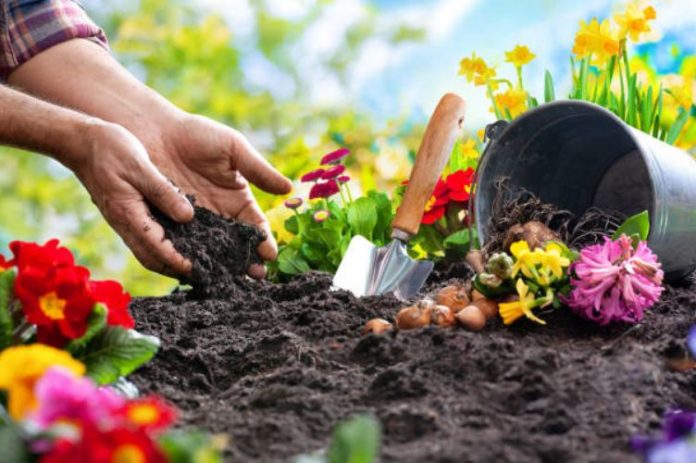People who work in gardens, particularly those who are paid to do so, have something in common with professional golfers and anglers.
Part of the enjoyment in what they do is the delightful environment in which they do it.
The paid gardener, whether he is an expert or someone who attends on a less professional basis will, generally speaking, be employed in a large and private situation by someone whose lifestyle allows the means to own such landscapes but whose workload demands that help be sought to maintain it.
The automobile and the highway network have enabled people to live many miles away from their places of work.
They locate themselves in country villages and hamlets and by so doing; they become part of a scene largely occupied by the farming community, the retired, and those who seek to escape from the bustle of the crowd.
Result: detached houses with large gardens.
It is from such properties that the demand for the gardener comes, and where the new occupiers discover that there is a lot more to the country garden than flowers, shrubs, and trees.
The popular view of peace and tranquility, with singing birds and colorful butterflies, is only one aspect of the suburban or rural garden.
It is the little incidents, like an unsuspecting person removing a plant from a large container and being frightened half to death when a toad leaps out from beneath the foliage, that one has to take into consideration.
A lot can also depend on the type of people who occupied the house before you. If you employ the same gardener you may be warned of certain oddities, if not, you could well draw your curtains one morning to find a rat as big as a cat sitting on the lawn, expecting to be fed.
There are those who would not appreciate this!
On the other hand, gray squirrels, described by some as tree rats, but generally spoken of rather fondly, are frequent visitors.
From a safe distance, you will be able to watch them burying their nuts and berries in one part of your lawn and then later, having forgotten where they buried them, digging up another part searching for them.
And, speaking of squirrels, it is always interesting to watch their performance where there are cats lurking at the bottom of the trees. While the squirrels won’t come down neither will the cats go up. A kind of ‘cat and squirrel’ ensues.
In the rural garden, particularly if adjacent to woodland, the strutting cock pheasant, a truly colorful and handsome bird with its harem of hens, presents a true country picture.
Released in thousands by gamekeepers every year, and reared in preparation for the shooting season starting in October, they march about the countryside like some feathered army, and if there happens to be a garden around – they’re in. They forage in cultivated land for seeds and insects.
The gardener may or may not welcome the insurgence of these uninvited guests; at best he will tolerate them.
What he will not do is encourage them for once given encouragement, particularly with food, they will appear every day, tramping over delicate plants, creating hollow scrapes wherever there is light soil and if there should be large plant pots on the patio, alighting on them and showering the compost in all directions with their vigorous scraping.
And as for shooing them away, forget it! They may retreat a little, but as soon as you stop, they are back.
Even spraying them with a hose only results in them shaking their feathers and returning. No wonder they are so easy to shoot.
Much of the wildlife, of course, you seldom see – apart from the rabbits that are. Badgers, foxes, weasels, etc. appear warily and rarely.
However, now and again the unusual happens. There is usually a species of wildlife that the most tolerant of people find unacceptable. These will vary considerably depending on the individual.
While most will happily accept the presence of squirrels, rabbits, hedgehogs, the game, badgers, and even the occasional fox, the sudden appearance of say, a bat, flying around the conservatory can be upsetting.
Such an incident could be the result of wire mesh covering vents under the apex and eaves becoming loose or unfastened allowing intrusion and even nesting of such creatures.
The maintenance of country buildings is extremely important.
Nevertheless, most people reflecting on the trees and shrubs, the flowers and the birds and all the other fascinating creatures which have become part of their lives, would not want it any other way.

